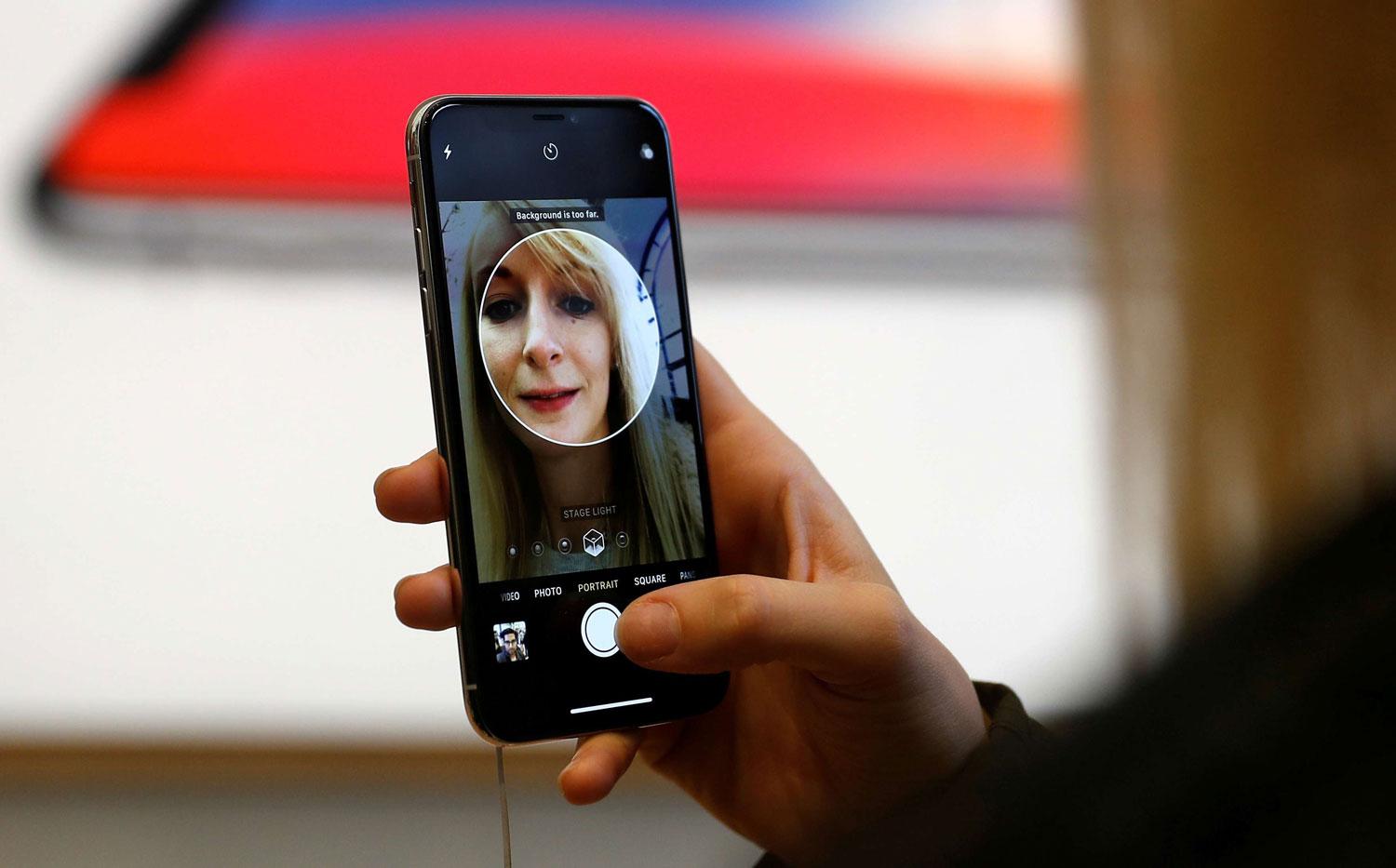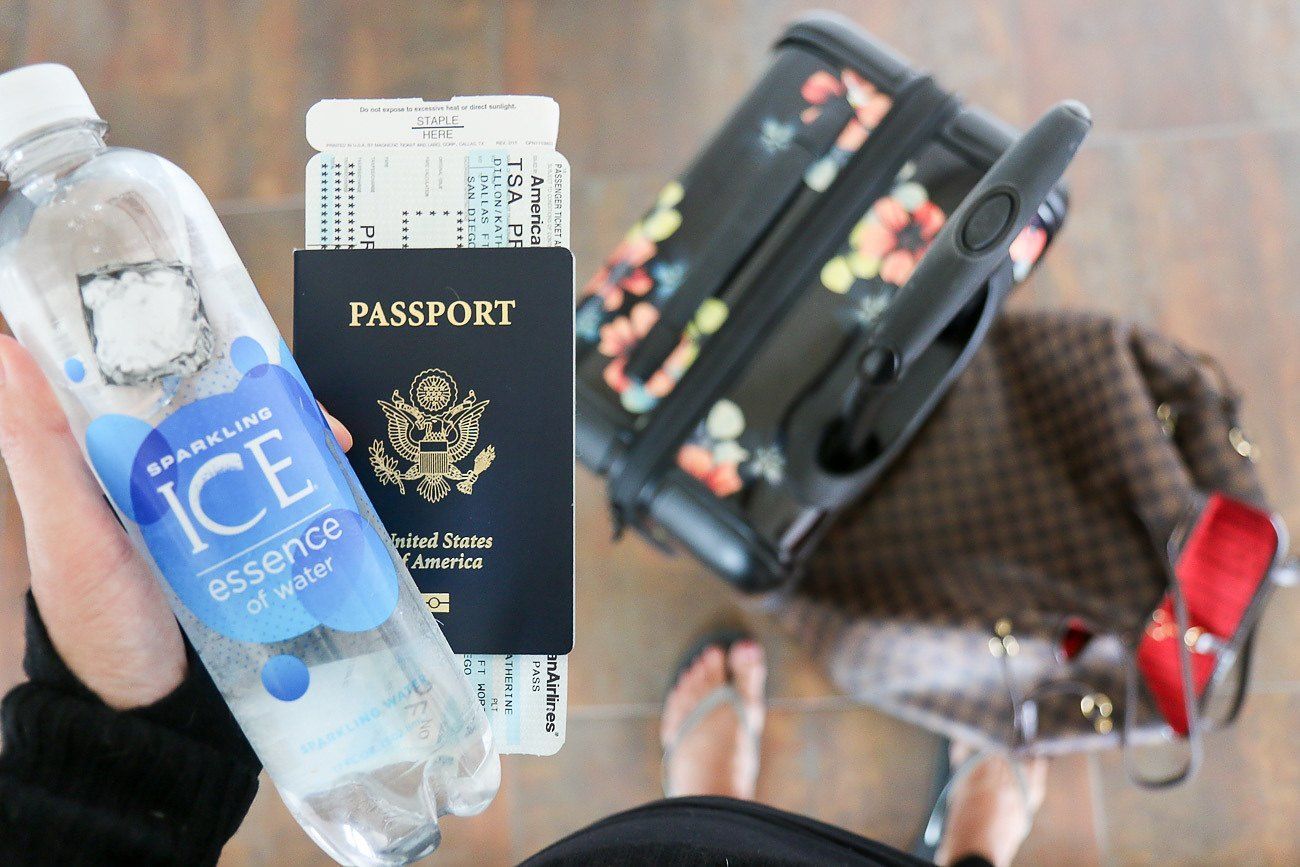-

Aristotle versus ChatGPT: IGCF 2023 will explore the future of education with international experts
-

All entities and individuals must submit their applications for the SGCA
-

Grammy bites : 14,000 users attacked by malware disguised as Billie Eilish
-

Lazarus enhances capabilities in AppleJeus cryptocurrency attack
-

Mystery shopper: malicious app spreads fake reviews thanks to in-app accessibility service abuse
Aristotle versus ChatGPT: IGCF 2023 will explore the future of education with international experts
Report.: Mohamed Khader Navas The upcoming 12th annual International Government Communication Forum (IGCF) in Sharjah is bringing educational experts and institutions a unique opportunity to examine future trends, the rise of AI and other technologies and their impact on education, the need for new skill sets in both students and teachers, and the role that government communications must play in enabling the understanding and uptake of emerging innovations in the sector in order to continue fuelling socioeconomic development as envisioned by
-
All entities and individuals must submit their applications for the SGCA
Report : Mohamed Khader NavasSharjah : The Sharjah Government Media Bureau (SGMB) has called upon all those in the communication field who have spearheaded impactful campaigns targeting youth to compete in the 10th edition of the Sharjah Government Communication Award (SGCA). The award is offering two specialised Arab categories tailored to recognise outstanding efforts in youth-focused communication, including accelerators and incubators’ support for entrepreneurs and startups, in addition to a third category for talented young individuals who have outstanding initiatives
-
Grammy bites : 14,000 users attacked by malware disguised as Billie Eilish
Dubai : technology. Cybercriminals are actively abusing the names of artists and songs nominated for a Grammy 2020 award, in order to spread malware. Kaspersky protection technologies detected a 39% rise in attacks (attempts to download or run malicious files) under the guise of nominees’ work in 2019, compared to 2018. Ariana Grande, Taylor Swift and Post Malone were attackers’ favorites, with these nominees’ names used most often in 2019 as a disguise for malware.Music has universal appeal – it
-
Lazarus enhances capabilities in AppleJeus cryptocurrency attack
Dubai : technology. In 2018 Kaspersky’s Global Research and Analysis Team (GReAT) published findings on AppleJeus – an operation aimed at stealing cryptocurrency carried out by prolific threat actor the Lazarus group. Now, new findings show that the operation continues with more careful steps from the infamous threat actor, improved tactics and procedures and the use of Telegram as one of its new attack vectors. Victims in the UK, Poland, Russia and China, including several connected to cryptocurrency business entities,
-
Mystery shopper: malicious app spreads fake reviews thanks to in-app accessibility service abuse
Dubai : technology. Kaspersky researchers detected a Trojan application that terrorizes users with unsolicited ads and boosts installations of online shopping applications – fooling both users and advertisers. This malicious app visits smartphone app stores, downloads and launches applications and leaves fake reviews on behalf of the user.As winter sales are hitting the stores, both users and brands need to be wary. When choosing shops, users rely heavily on reviews, while retailers increase their promotion and advertising budgets. As it
-
two-thirds of industrial organizations don’t report cybersecurity incidents to regulators
Dubai : technology. A recent Kaspersky survey has discovered that two-thirds (67%) of industrial organizations do not report cybersecurity incidents to regulators. Though remaining compliant in modern industrial business is a necessity and a driver for investment, there are many factors that influence how companies follow compliance rules. In a world where cybercriminals are using sophisticated attacks to breach industrial companies, robust cybersecurity policies and keeping up with regulations have never been more important. From the General Data Protection Regulation
-
IT security budgets lower than average in 45% of SMBs and 50% of enterprises
Dubai : technology. According to statistics from the Kaspersky IT Security Calculator, budgets at 45% of SMBs and 50% of enterprises are below the average spend — which is $205k for small and medium and $8m for enterprise businesses. This is even though cybersecurity spending is growing year-on-year with almost 9% growth in 2019, according to Gartner report. Knowing how much money is spent on IT security across the industry allows companies to understand where they are in the market,
-
Out of control : more than half of parents trust kids to regulate their online activity
Dubai : technology. A recent global study conducted by Kaspersky, highlighting the results in KSA, has found that in a bid to promote self-regulation online, 60% of Saudi parents trust their kids to know when enough is enough. However, 79% of them admit that they themselves spend too much time online and almost three quarters (82%) feel that internet and mobile device usage in general is impeding family life. There is little doubt that digital activities can be addictive, and
-
Malware variety grows by 13.7% in 2019 due to web skimmers
Dubai : technology. In 2019, the number of unique malicious objects detected by Kaspersky’s web antivirus solution rose by an eighth, compared to last year — reaching 24,610,126. This growth was mainly influenced by a 187% rise in web skimmer files. Other threats, such as backdoors and banking Trojans detected in-lab, also grew, while the presence of miners dropped by more than a half. These trends have demonstrated a shift in the type of threats used by attackers on the
-
study : 174 ransom attacks targeted the municipalities 2019
Dubai : technology. 2019 has been the “year of ransomware attacks on municipalities” according to Kaspersky security experts. This comes after the company’s researchers observed that at least 174 municipal institutions, with more than 3,000 subset organisations, have been targeted by ransomware during the last year. This represents a 60% increase at least, from the figure in 2018. While threat actors’ demands would sometimes reach up to $5,000,000, actual costs and damages sustained during attacks are estimated to be larger.
-
50% of Arab citizens polled jeopardise their privacy and security by using pirated software
Dubai : technology. Kaspersky has conducted a survey on software usage and IT security attitudes among Digital Natives and Digital Immigrants, in collaboration with popular Arabic technology news portal – AITnews.With inputs from more than 1,700 Arab respondents across the world, the survey uncovered that 37 per cent always download pirated software and applications, and 20 per cent do this sometimes. More than half (52 per cent) of these Internet users say that they always check and verify the source
-
Financial threats in 2020 : fintech, mobile banking and e-commerce are in the crosshairs
Dubai : technology. In 2020, financially motivated cyberthreat actors may start to target investment apps, online financial data processing systems and upcoming cryptocurrencies, along with providing paid access to banks’ infrastructures and developing new strains of mobile banking malware based on leaked source code. These are the key predictions from Kaspersky on the expected development of the threat landscape in the financial sector. Financial cyberthreats are considered to be some of the most dangerous ones, as the impact they bring
-
Not-so-safe travels : сybercriminals stealing guests’ credit card data from hotel
Dubai : technology. Kaspersky’s research of the RevengeHotels campaign aimed at the hospitality sector, has confirmed over 20 hotels in Latin America, Europe and Asia have fallen victim to targeted malware attacks. Even more hotels are potentially affected across the globe. Travelers’ credit card data which is stored in a hotel administration system, including those received from online travel agencies (OTAs), is at risk of being stolen and sold to criminals worldwide.RevengeHotels is a campaign that includes different groups using
-
Threats in 2020 : abuse of personal information and more sophisticated attacks are coming
Dubai : technology. Kaspersky researchers have shared their vision on Advanced Persistent Threats (APTs) in 2020, pointing out how the landscape of targeted attacks will change in the coming months. The overall trend shows that threats will grow in sophistication and become more targeted, diversifying under the influence of external factors, such as development and propagation of machine learning, technologies for deepfakes development, or tensions around trade routes between Asia and Europe. The predictions were developed based on the changes
-
Organizations working against domestic violence join forces with IT Security companies
Dubai : technology. Today, ten organizations – Avira, Electronic Frontier Foundation, European Network for the Work with Perpetrators of Domestic Violence, G DATA Cyber Defense, Kaspersky, Malwarebytes, National Network to End Domestic Violence, NortonLifeLock, Operation Safe Escape and WEISSER RING – have launched a global initiative called the Coalition Against Stalkerware.What is stalkerware?Stalkerware programs carry the possibility for intrusion into a person’s private life and are being used as a tool for abuse in cases of domestic violence and stalking.
-
Half of Q3 DDoS attacks happened in September
Dubai : technology. In the third quarter of 2019, the number of DDoS attacks rose by a third compared to the previous period (30 percentage points) and Q3 2018 (32 percentage points) according to statistics gathered from Kaspersky DDoS Protection.This growth was primarily due to a spike in malicious activity in autumn. In fact, 53% of the quarter’s DDoS attacks were carried out in September. The rise is caused by a large number of rather simple types of attack. Nonetheless,
-
Kaspersky’s latest Advanced Persistent Threat (APT) report showcases most vulnerable Middle Eastern countries
Dubai : technology. Since the start of 2018, Kaspersky researchers have kept a close eye on the META region for Advanced Persistent Threat (APT) attacks and worked on 96 investigative cases across the Middle East.These statistics are drawn from Kaspersky’s APT intelligence reporting service, which is populated by Kaspersky’s Global Research and Analysis team. The team issues detailed reports on each of the investigations and alerts the security operations team in governments and businesses on the threat actors that concern
-
How to shop safely on Singles Day?
Dubai : technology. Kaspersky researchers have reported on a sharp increase in fraudulent activities around e-commerce during an active sales period in Asian countries – Singles’ Day (November 11). While Singles’ Day originates from China, it is now relevant to users of e-marketplaces all over the world. Pre-holiday promos and sales on global Asian platforms are welcomed internationally, and scammers are now targeting users in different languages.Our researchers detected a spike in financial phishing attacks before the big Singles’ Day
-
The dangers of a password for a lifetime
Dubai : technology. Traditional passwords nowadays are a weak point as data leaks happen quite often. More and more companies decide to change the approach and adopt biometrics. However, no one is immune to identity theft and there already have been several actual cases of losing biometric data. To raise awareness on the topic and show that such data requires strong security regulations, Kaspersky distinguished several dangers of unsecured biometric data: 1. Stranger-danger. In order to set face or touch
-
harmless habits threatening online safety
Dubai : technology. Everyone nowadays is connected to the Internet and has by now probably settled into some online routines: we all have such habits as checking our e-mails and social media pages first thing in the morning and consider these rituals healthy and harmless. However, some online habits can actually affect our whole life negatively, others only one aspect of it: online security. Kaspersky has distinguished nine habits that can result in data leak or infecting PCs with malware,
-
How to protect yourself from hacking whilst on business trips
Dubai : technology. Business Executives who are keepers of secrets of the company are high-priority targets for cyber espionage. Especially, when traveling, precautionary measures – including those outside the world of IT – are essential, and they must be accompanied by an awareness of operational security (OPSEC). Kaspersky, a global cybersecurity company, is increasingly focusing on improving broader IT security awareness, for example by improving the skillset of business travelers on how to protect critical data and fending off attacks
-
Social exposure : examining the underlying insecurities in the future of robotics
Dubai : technology. The social influence of robots on people and the insecurities this can bring should not be underestimated. Research conducted by Kaspersky and Ghent University has found that robots can effectively extract sensitive information from people who trust them, by persuading them to take unsafe actions. For example, in certain scenarios, the presence of a robot can have a big impact on people’s willingness to give out access to secure buildings.The world is rapidly moving towards increased digitalization
-
When it’s too late: 50% of incident response requests occur after damage from a cyber attack is complete
Dubai : technology. Around 56% of Incident Response (IR) requests processed by Kaspersky security experts in 2018 happened after the affected organization experienced an attack that had visible consequences such as unauthorized money transfers, workstations encrypted by ransomware and service unavailability. 44% of requests were processed after detection of an attack during an early stage, saving the client from potentially severe consequences. These are among the main findings of Kaspersky’s latest Incident Response Analytics Report.It is often assumed that incident
-
86 % of parents are worried about their child’s online safety
Dubai : technology. Kaspersky’s new global research reveals challenges behind limited family conversations on the internet safety 86% of parents in Saudi Arabia are worried about their children’s online safety, according to the latest survey commissioned by Kaspersky and conducted by the market research company Savanta. Nevertheless, on average, parents only spend a total of 22 minutes talking to their children about online security through their entire childhood. More than half (83%) of those surveyed spend less than 30 minutes
-
Smart buildings threat landscape : 26.5% targeted by malicious attacks
Dubai : technology. Almost two in ten (26.5%) computers used to control smart building automation systems were subject to some kind of malicious attack in the first half of 2019, according to an overview of smart building threats conducted by Kaspersky. This study shows that while it is unclear if such systems were deliberately targeted, they often become a destination for various generic threats. Despite not being sophisticated, many of these threats may pose significant danger to everyday smart building
-
eliminate severe bugs in popular automated industrial system software
Dubai : technology. Kaspersky ICS CERT researchers have discovered several vulnerabilities in a popular framework used for developing industrial devices such as programmable logic controllers (PLC) and Human-Machine Interface (HMI). These devices are at the heart of almost any automated industrial facility – from critical infrastructure to production processes. The uncovered vulnerabilities potentially allowed an attacker to conduct covert destructive remote and local attacks on the organization where PLCs developed through this vulnerable framework are used. The framework was developed
-
45% of small businesses have been victims of data breaches in 2019,
Dubai : technology. Around 45% of small businesses have been victims of data breaches in 2019, according to a recent Kaspersky survey . While data breaches threaten small companies with painful consequences, the survey revealed that security measures taken by them to prevent such incidents are often insufficient. Although stories about cybersecurity incidents in companies with under 50 employees rarely make newspaper headlines, a data breach for a smaller company may directly impact their business. As their resources are often
-
Phishing attacks targeting increased by 9% to reach 1.6 million in less than a year
Dubai : technology. The number of phishing attacks targeting users of Mac computers, iOS-based mobile devices, and the associated web services ecosystem to lure them into fraudulent schemes has reached 1.6 million in the first half of 2019. This figure is around nine percent greater than attacks experienced in the whole of 2018. The growing number of users of popular digital devices is clearly attracting more and more cybercriminals. This is one of key finding of Kaspersky’s Threats to Mac
-
Kaspersky Security for Microsoft Office 365 now protects OneDrive to help businesses store
Dubai : technology. Kaspersky Security for Microsoft Office 365 expands protection capabilities from Exchange Online to include Microsoft storage service OneDrive. The product prevents malware from infiltrating OneDrive and spreading across corporate networks. This is achieved through multiple layers of protection empowered with heuristic and behavioral analysis. Businesses create dynamic, digital environments where employees can collaborate, share and store corporate data. Being under constant pressure to work fast and effectively means they may sometimes miss suspicious files or emails containing
-
Storm Area 51 is the most popular meme of summer 2019 among kids
Dubai : technology. During what has been a content-rich summer, children have shown significant interest in viral memes about Area 51, according to Kaspersky’s annual summer report into kids’ online safety. Area 51 is commonly believed to be a research facility where the American government is rumored to be studying creatures from outer space. In an attempt to see the aliens, adults even went as far as creating a special Facebook event. “We will all meet up at the Area
-
They can : athletes with Down syndrome and cerebral palsy to climb Mount Kilimanjaro
Dubai : technology. On September 3rd, a group of Russian athletes with Down syndrome and cerebral palsy started to climb Mount Kilimanjaro, becoming one of the first groups of Russian people with disabilities to do this. ‘Kilimanjaro. I can!’ is a joint project of Kaspersky, Syndrome of Love and Downside Up - two charity foundations aimed at breaking the stereotypes about physical disability associated with Down syndrome and cerebral palsy diagnoses. The project has been launched to show that even
-
cybercriminals use more than 50,000 textbooks and student essays as a disguise for malware
Dubai : technology. Kaspersky experts have uncovered 53,531 malicious or potentially unwanted files disguised as ready-to-use essays and textbooks for schools and universities. From August 2018 to July 2019 they were used in 356,662 attacks on 104,819 users – a 21% decrease, compared to the figures from the previous year. These are among the main findings of Kaspersky’s ‘Back to School report’.While some might find the cost of student books to be quite expensive, they are an inevitable part of
-
41% of consumersstill use unsupported andnear end-of-life OS
Dubai : technology. Many consumers and businesses stillrely on unsupported or near end-of-life operating systems (OS), according to Kaspersky research. While newer versions of such OS are available, around41% of consumers still use either an unsupported or approaching end of support desktopOS like Windows XP or Windows 7. At the same time,40% of very small businesses (VSBs) and 48% of small, medium-sizedbusinesses (SMBs) and enterprises still rely onthese systems. This situation creates a security risk.In most cases, the end of
-
60 % rise in users hit by password stealers
Dubai : technology. The use of malware designed to harvest consumers’ digital data – known as password stealers – has seen a significant rise in 2019. According to Kaspersky’s data, the number of users, targeted by the stealers, peaked from less than 600,000 in the first half of 2018 to over 940,000 during the same period in 2019. Password Stealing Ware (PSW) is a major weapon in the cybercriminals’ toolkit to sabotage users’ privacy. This malicious type of software grabs
-
FinSpy strikes again : new versions for iOS and Android targeted surveillance revealed
Dubai : technology. Kaspersky experts have uncovered new versions of the advanced malicious surveillance tool FinSpy. The new implants work on both iOS and Android devices, can monitor activity on almost all popular messaging services, including encrypted ones, and hide their traces better than before. The tools allow attackers to spy on all device activities and exfiltrate sensitive data such as GPS location, messages, pictures, calls and more. FinSpy is an extremely effective software tool for targeted surveillance that has
-
Securing space: Kaspersky to give cosmonauts cybersecurity training
Dubai : technology. Kaspersky is proud to announce its new partnership with the Gagarin Research and Test Cosmonaut Training Center – the location in Star City where cosmonauts from all over the world prepare to go to space. As part of this collaboration, the company will hold special training for cosmonauts, as well as IT specialists at the center, to educate them on the current cybersecurity landscape.Space development and exploration is actively driven by advanced technology and it is important
-
Over 900,000 usershit in a year by fake video games spreading malware
Dubai : technology. Cybercriminals are taking advantage of growing demand for video games by distributing malware through fake copies of the most popular ones, research by Kaspersky has found. More than 930,000 users were hit by such attacks in the 12 months from early June 2018 to early June 2019. Over a third of the attacks centered on just three games.Video gaming has been around for a while, but the power of the internet has accelerated its growth and evolution.
-
New variants of Russian mobile Banking Trojan Riltok go international
Dubai : technology. Kaspersky researchers have discovered that the money-stealing mobile malware, Riltok has launched new variants and is extending its targeting from Russia to the rest of the world, starting with Europe, disguising itself as services popular in France, Italy and the United Kingdom. Riltkok was first observed in mid-2018.Riltok is a Banking Trojan. These represent a dangerous threat to smartphone users because they are designed to gain access to the financial accounts and assets of their victims, primarily
-
Grade hacking services and fake diplomas easily available online during exam season
Dubai : technology. Cybercriminals are taking advantage of summer exam pressures by offering black market grade-hacking services and fake qualifications online, and ensuring these opportunities are easy to find with a quick internet search, Kaspersky researchers have found.Reports of young people breaking into school systems to change grades, improve attendance records or disrupt test processes are not new, and nor is the availability of fake certificates and diplomas. Over the years, a thriving underground industry has grown up to facilitate
-
poll : 87% of people don't understand how work cryptocurrencies
Dubai : technology. New Kaspersky’s survey has discovered that a lack of understanding and trust is holding consumers back from using cryptocurrencies. The Kaspersky’s report, ‘Uncharted territory: why consumers are still wary about adopting cryptocurrency’, reveals that whilst (29%) of people in the META region have some knowledge of cryptocurrencies and there is a demand among many to use the technology, just (13%) fully comprehend how they work. The rate in which cryptocurrencies are being adopted by global consumers is
-
47% of people in the META region would give up social media to guarantee lifetime data privacy
Dubai : technology. Kaspersky’s recent report ‘the true value of digital privacy: are consumers selling themselves short?’ has revealed that 47% consumers would give up their social media accounts to guarantee their data remains private for the rest of their life. Fears surrounding protecting digital privacy have made consumers more anxious about the use and distribution of their personal information on the internet. The report outlines how and why consumers’ personal information is becoming incredibly valuable to them. Social media
-
Kaspersky Internet Security for Android enables machine learning technology to protect against advanced threats
Dubai : technology. Kaspersky Internet Security for Android has been strengthened with a new feature for combating the evolving malware landscape – Cloud ML for Android. The new feature, based on machine learning technology, ensures immediate proactive detection of advanced and previously unknown malware, to minimize the risks of mobile devices being exposed to cyberattacks. To this end, malicious applications that may have been downloaded on a mobile device are detected before they launch.Over the few last years, mobile threats
-
Kaspersky Internet Security for Android enables machine learning technology to protect against advanced threats
Dubai : technology. Kaspersky Internet Security for Android has been strengthened with a new feature for combating the evolving malware landscape – Cloud ML for Android. The new feature, based on machine learning technology, ensures immediate proactive detection of advanced and previously unknown malware, to minimize the risks of mobile devices being exposed to cyberattacks. To this end, malicious applications that may have been downloaded on a mobile device are detected before they launch.Over the few last years, mobile threats
-
Tech support burden on younger generation results in relationship rifts
Dubai : technology. Technology has transformed how we live our lives, but it has come at more than just a financial cost for many of us. A new Kaspersky survey has found that more than a third (35%) of over 55s would struggle with daily technology challenges if it wasn’t for support from their children. Due to this, they are automatically turning to younger family members for all forms of tech support, leading to cries of ‘Can you just… fix
-
Don’t get swept up: the number of users lured into installing scam cleaners doubled in a year to almost 1.5 million
Dubai : technology. Kaspersky experts have detected a two-fold rise in the number of users being attacked with fake system cleaners – fraudulent programs designed to trick users into paying for alleged serious computer issues to be fixed. The number of users hit reached 1,456,219 in the first half of 2019, compared to just 747,322 for the same period in 2018. During this time, some of the attacks have become more sophisticated and dangerous.A slow-working or poorly performing computer is
-
four out of ten employees accidentally found colleagues’ salary at work
Dubai : technology. As the saying goes, “data is money”. Sometimes it literally is — for example, when one bumps into a spreadsheet with their colleagues’ salaries in it. In the latest Kaspersky’s survey,almost four-in-ten employees (37%) admitted to accidentally accessing confidential information about their colleagues – such as salary and bonus information. Payroll details are just one example of the sensitive personal data that reside on companies’ servers today. If leaked in publicdue to a lack of security and
-
Number of malicious mobile banker packagescirculating online grew by 57%
Dubai : technology. Kaspersky researchers have uncovereda worrying risein malware designed to steal credentials and moneyfrom users’ bank accounts: in Q1 2019,researchersfound 29,841 files of such malware, up from 18,501 in Q4 2018.Overall, attacks on more than 300,000 users were detected. These are among the main findings ofKaspersky Lab’s IT threat evolution inQ1 2019report.Mobile banking Trojans are one of themostrapidly-developing, flexible and dangerous types of malware. They usually steal funds directly from mobile users’ bank accounts, butsometimes their purpose is
-
Tourist traps: phishers and spammers lurk behind thousands of fake flight and accommodation offers
Dubai : technology. Kaspersky Lab researchers tracking the activity of malicious spammers and phishers have uncovered multiple operations during May seeking to exploit people’s desire to secure a good bargain. Among other things, the researchers found more than 8,000 phishing attacks disguised as offers from popular lodging platforms, as well as several email blasts appearing to come from a legitimate travel brand that signed victims up to paid phone services. Spam and phishing are among the most effective attack vectors.
-
ScarCruft : Korean-speaking threat actor evolves, creates malware to identify connected Bluetooth devices
Dubai : technology.Kaspersky Lab researchers monitoring the activity of ScarCruft, a skilled, Korean-speaking threat actor have discovered that the group is testing and creating new tools and techniques, and extending both the range and volume of information collected from victims. Among other things, the group has created code able to identify connected Bluetooth devices. The ScarCruft advanced persistent threat (APT) is believed to be state-sponsored and usually targets government entities and companies with links to the Korean peninsula, apparently in
-
Scammers target job seekers with sophisticated money-stealing scheme
Dubai : technology.Kaspersky Lab experts detected a blast of sophisticated spam emails in the first quarter of 2019, featuring fake job-offers that seemed to come from HR-recruiters in large corporations that traditionally attract a lot of interest from potential employees. However, the emails actually came from spammers and installed money -stealing malware on users’ devices.Spam emails are an often underestimated threat, yet they can spread malware through social engineering methods like deception and psychological manipulation, and claim many victims. To

|
مواقع التواصل الاجتماعي مواقع تجسس تبيع بيانات المستخدمين
نعم
69%
لا
20%
لا أعرف
12%
|
| المزيد |




















































